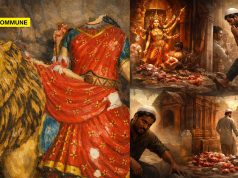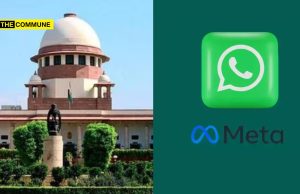
The year was 1944.
A young man in his twenties went up to the director of the play and demanded that a meaty role be written for him. Thenmozhiyaal was the title of the play. The director however told the young man that there was no role for him and that it was not possible to fit him in any other role. But that did not discourage this witty young man. Irked, he replied “Well, then I will walk into every scene.”
The smirk on the face and the mischief in the eyes made the director perspire. The director hurriedly went to speak to the heavyweights of the drama troupe and mentioned the encounter with the young man. They asked him to calm down and not take him seriously.
“Don’t worry. Do you think that fellow will pull out such a threat?”
A voice from behind said “You’re damn right, I will. I need at least three scenes with dialogues for me.”
The whole set looked perplexed at the unfolding situation. Hurriedly, the director writes not three but five scenes for him.
“There is a problem. I am not able to come up with a name for your character.”
“Never mind. I will go with my name.” The character was named Cho.
This three lettered sobriquet stuck with him for eternity. These three letters would go on to define a legend who made a mark in every endeavour of his.
But how did he get the name ‘Cho’? Neelu, a popular drama actor and a close friend of Cho recounts in an interview to Times of India that as a boy, Cho was puny and weak. Elders in the house and his friends used to call him as “Chozha Brahmmahaththi” which is a reference to the king who was possessed by an evil spirit that made him abnormally thin and weak. Little did they realize that this Chozha Brahmmahaththi would go on to become an intellectual giant!
Beginning his career as an advocate at Madras High Court, he helped his father and grandfather in their law firm during his early years. Later he served as a legal adviser to T.T. Krishnamachari group of companies for fifteen years. But his interest towards drama made him shift his trajectory in life. Over a period of time, Cho became a well reputed name in the households of Tamil Nadu. He acted and directed twenty three plays, acted in more than a hundred films, wrote screen play for five films and directed another five.
With the launch of Thuglak magazine, his name however started spilling from the homes of Tamil Nadu to the streets! Be it the middle class mamas discussing politics in the living room or the working class at the tea-kadai benches, every conversation would be about Cho’s take on national and state politics. Laced with wit and humour he made politics cool. The humour in his speeches and writing were never slapstick or vulgar but was clean and usually self-depreciating which tickled ribs of people cutting across ages.
Though he was called out for his Brahmin lineage by the rationalist ilk, he was unapologetic about it just like his friend and the late Chief Minister Jayalalithaa. Nevertheless, he was never a Brahmin apologist. Through his plays like Sattiram Sonnadhillai (The Sastras Never Said So), he made a strong statement against casteism by exposing the hypocrisy of certain section of the Brahmins and their rigid and parochial mindset. His book Engey Brahmanan which was made into a series and telecasted in Jaya TV talks about what it takes to be a true Brahmin. His other play titled Yarukkum Vekkammillai (No One Has Any Shame) portrays how a society creates prostitutes and later condemns and ostracizes them. In this play, a young lawyer from a rich industrial family brings home a prostitute as his first case. As the events unfold, it turns out that the lady was driven to prostitution by the lawyer’s brother. An interesting aspect of the play is that it is a Muslim who stands by the side of the prostitute and exposes the elder brother. Such messages of social cohesion were part of many of his work in his later years.
His most well know political satire Mohammad Bin Thuglak, which was later made into a movie was the one that won him accolades. In the shows performed in the later years, he thanks the audience for making the play relevant even today.
Be it his plays or books, Thuglak the movie or Thuglak the magazine, he held a huge mirror towards us and made us question ourselves. He conveyed that the country will not progress unless its people do.
To elaborate on several of the hats that he donned and his contribution to the myriad fields he touched would require multiple books and cannot be condensed in a 1000 word article. Rarely do we come across such an eclectic personality. A lawyer, an actor, a dramatist, a director, a journalist, a political commentator and a kingmaker, Mr. Cho was not just a jack of all trades, he was a master of it all. The void he has left since his passing away remains unfilled and will remain so forever. It is the responsibility of every one of us to ensure that such a person is not lost to time and continue to remember him for his service to India and the Tamil society in particular.




